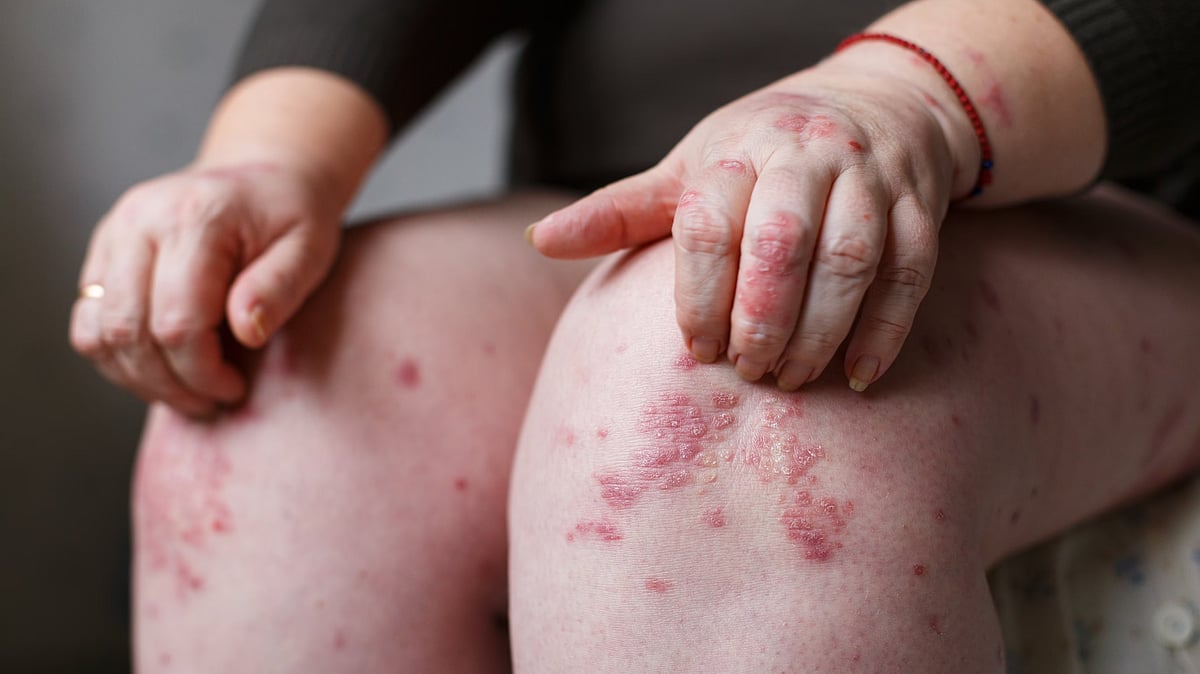World No Tobacco Day is observed every year on 31 May. The celebration of this day informs the public on the dangers of using tobacco, the business practices of tobacco companies and what the World Health Organization (WHO) is doing to fight the use of tobacco and also what people around the world can do to claim their right to health.
Although the hazards of tobacco were not new, it is being said that tobacco users can be more vulnerable to COVID- 19 infection.
Tobacco usage – India perspective:
The use of tobacco leads to nearly 8 million deaths every year globally, according to the World Health Organization, predominantly due to lung and heart diseases. Out of these, over seven million deaths are a result of direct tobacco use, and the rest due to exposure to second-hand smoke. About 80% of the deaths occur in low- and middle-income countries.
India is the second-largest producer and consumer of tobacco products in the world, with over 27 crore tobacco users according to the Global Adult Tobacco Survey fact sheet India, 2016-17. Available estimates for India indicate that smoking attributes to around 9.3 lakh deaths and smokeless tobacco (SLT) accounts for 3.5 lakh deaths annually, i.e., an astounding 3,500 deaths each day. The proportion of tobacco-related cancers ranged from 11-25% in men and 3-18% in women.
Dr. Rajendra Badwe, Director, Tata Memorial Centre stated that Tobacco use besides being a major risk factor for cardiovascular disease, cancer, chronic lung disease and diabetes, is also putting people with these conditions at higher risk for developing severe illness when infected by COVID-19. COVID Pandemic has highlighted the need for Tobacco cessation in India as one of the priority health intervention to be made more accessible to tobacco users. To that effect, Tata Memorial Centre has been offering these services at its Preventive Oncology Clinic since 2002 in Mumbai and currently across various Cancer Institutions established under TMC across the country including the Tobacco Quit Line Services established at ACTREC, Kharghar.
Health risks of tobacco:
India is witnessing a deadly second wave of COVID-19 pandemic marred with a new variant of the virus, relaxation of restrictions, initial vaccine hesitancy and slow vaccine uptake, which is bringing the country's health system to its knees. As of May 28, 2021, there are over 2.75 crore COVID-19 cases in India and nearly 3.19 lakh people have succumbed to death due to the pandemic.
Acute respiratory distress syndrome is not only the key complication for severe cases of COVID-19 but also is associated with smoking. Bidi smoking increases the risk of chronic bronchitis and emphysema by up to four times and the risk of coronary heart disease by threefold. There is a significant association between smokeless tobacco exposure and fatal stroke. The prevalence of tuberculosis is three times higher among smokers as compared to non-smokers. The presence of the above-mentioned existing comorbidities makes tobacco users more vulnerable to COVID-19 infection.
COVID-19 and Tobacco usage:
A review of nearly 23 studies indicates that nicotine exposure is linked to cardiopulmonary vulnerability to COVID-19. Tobacco use can be a potential risk factor for not only getting the viral infection but also its severe manifestations. Data has shown that tobacco use rises the gene expression of angiotensin-converting enzyme-2, the binding receptor for Severe Acute Respiratory Syndrome Coronavirus-2. This may explain the elevated susceptibility to COVID-19 among smokers. Additionally, tobacco smoking is the prominent cause of chronic obstructive pulmonary disease, which has been identified as an independent risk factor in severe COVID-19 cases. A close association between tobacco use and severe COVID-19 manifestations, tobacco use linked to cardiopulmonary vulnerability to COVID-19, makes the treatment of such COVID-19 patients more challenging.
Tobacco affects almost all organs of the human body and primarily the lungs. Coronavirus infection impairs the function of the lungs, and the case can worsen if the lungs are damaged previously. A systematic review conducted in 2019 found out that smokers have a 34% higher probability of influenza-like illness compared to non-smokers.
An analysis of hospitalized deaths from coronavirus in Wuhan, China revealed that among the patients diagnosed with COVID-19 associated pneumonia; the odds of disease progression was 14 times higher in people with a history of smoking as compared to non-smokers. This was the strongest risk factor among those examined.
One of the systematic reviews mentions that smokers are 1.4 times more likely to have severe symptoms of COVID-19 and approximately 2.4 times more likely to be admitted to an ICU, need mechanical ventilation, or die compared to non-smokers.
In a patient with pre-existing COPD, the mortality rate is four times greater than that of a normal COVID-19 patient. Smoking increases the chances of death from COVID-19 by a staggering 80%. A meta-analysis including 19 studies with 11,590 COVID-19 patients found a significant association between smoking and progression of COVID-19. Although population-based scientific studies are much needed to establish the relationship between them.
Dr. C. S. Pramesh, Director Tata Memorial Hospital, Mumbai specified that any form of tobacco smoking damages lungs and cannot perform at their peak capacity. Around 8 out of 10 cases of Chronic Obstructive Pulmonary Disease (COPD) are also caused by smoking. Smokers are 20 times more likely to develop lung cancer than non-smokers. He advised that the best way to ensure lung health is to never start using tobacco, but if you are an addicted smoker, quitting smoking can improve lung health and lower the risk of getting cancer.
Pre-existing comorbidities among tobacco users such as cardiovascular diseases, diabetes, respiratory diseases, and hypertension are found to aggravate the disease manifestations further, making the treatment for COVID-19 infected patients more challenging due to their rapid clinical deterioration.
COVID-19 transmission mechanism among tobacco consumers:
Tobacco consumer has frequent hand-to-mouth contact using fingers several times during the day, which possibly can transmit coronavirus to himself and spread to others. Sharing of smokeless tobacco products as well as sharing of bidis/cigarettes/ water pipes/ hukkah within the groups can increase the risk of transmission of this virus in social gatherings. Some countries in the Eastern Mediterranean Region have banned the use of shisha in public places to avoid COVID-19 transmission. Smokeless tobacco consumption increases salivation in the mouth, inducing an urge amongst the consumers to spit in public places. The use of a spittoon can also escalate the transmission of the virus.
Tobacco is known to weaken the immune system of the consumers, altering the structural host defences, predisposing them to inflammation and infections such as respiratory infection. COVID-19 infection is not an exception. Leading to the early commencement of the infection, such individuals face the challenge to fight the COVID-19 infections. Second-hand smoke can increase the chances of respiratory infections and increase vulnerability to coronavirus infection. Third-hand smoke exposure in the form of used cigarette butts has potential to spread viral infection in the environment.
Learnings from the pandemic:
Measures to combat the COVID-19 pandemic are optimal hand hygiene using handwashing with soap and water, use of alcohol-based sanitiser, maintaining social distancing, proper use of face mask covering nose and mouth, vaccination, helping to quit the habit through Tobacco Cessation Clinics and Toll-free Tobacco Quit Lines. One of the control measures of the COVID-19 pandemic is smoking cessation, and the ban on tobacco products can help to reduce the transmission and severity of COVID-19 in the community. Smoking cessation efforts play a critical role in improving the health outcome of the patient by increasing the cancer treatment effectiveness and reducing cancer mortality by 30-40%.
Youth are vulnerable to the addictive nature of tobacco and initiation of a tobacco habit by them needs to be prevented before the third wave of the COVID-19 pandemic. 30% relative reduction in the prevalence of tobacco smoking in adults (≥ 15years) by the year 2025 can be achieved by the comprehensive ban on tobacco advertising, promotion, and sponsorship.
The benefits of quitting tobacco start within 20 minutes of quitting. It has beneficial effects on health, helps the lungs and heart to work better, recover from mild coronavirus infection earlier, and avoids exposure to second-hand smoke.
Dr Pankaj Chaturvedi, Deputy Director, Centre for Cancer Epidemiology who helped enforce the Gutka ban in Maharashtra, stated Tobacco Quit Line Services has been enabled at the Centre for Cancer Epidemiology which provides telephonic tobacco cessation services. Of the total registered 35,743 calls, 14,927 (42%) people were ready to quit tobacco and they agreed to attend the regular follow-up calls.
A strong awareness is crucial, addressing health hazards of tobacco use and vulnerability of tobacco as a risk factor for severe manifestation of COVID-19 infection. ‘World No Tobacco Day is observed on 31st May every year, and in 2021, it is observed with the theme ‘Commit to Quit and Sign the Pledge’.
Tata Memorial Hospital is deeply involved in programs in the field of creating awareness and counselling about the adverse effect of tobacco consumption and provides Tobacco Cessation Services through the Tobacco Cessation Clinic (TCC) under the Department of Preventive Oncology, that offers effective personalized and group counselling. On average, more than 3000 tobacco users are counselled every year at TCC. Throughout the year, the Department of Preventive Oncology conducts anti-tobacco awareness sessions, training & capacity building on Tobacco Cessation and Control for staff of Government & Non-Governmental organizations and delivers regular workshops for medical & paramedical staff.










